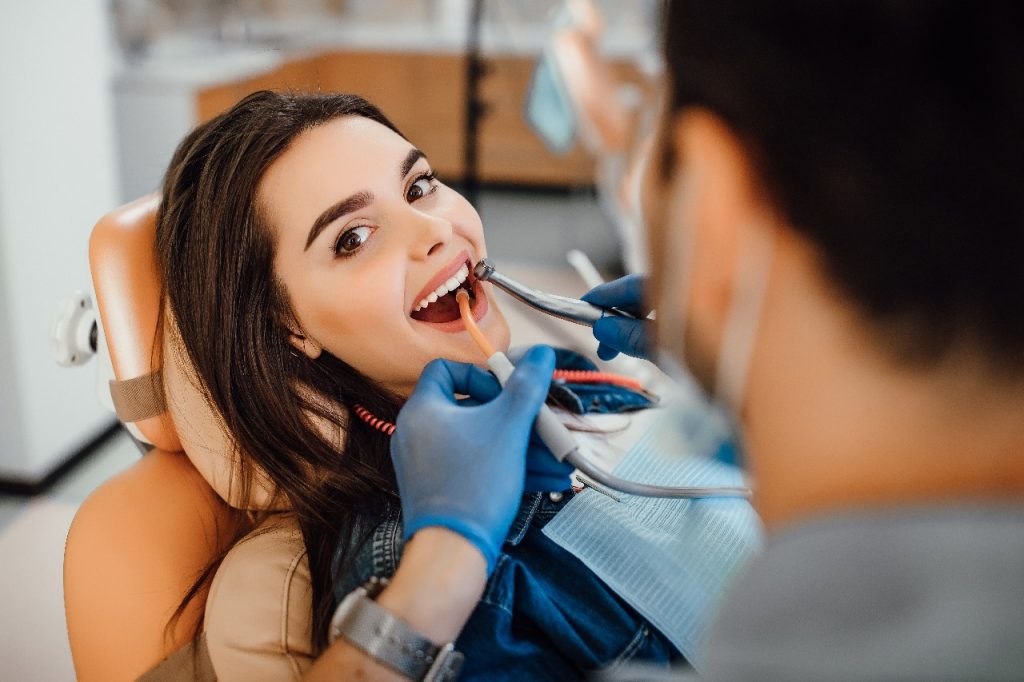When it comes to replacing missing teeth, patients have more options today than ever before. One solution gaining popularity is flexible dentures. Unlike traditional dentures, which are often made of acrylic and metal, flexible dentures use a soft, pliable material that provides enhanced comfort and a more natural appearance. But what exactly are flexible dentures, and why should you consider them? Let’s delve into all aspects of this modern dental solution, from the materials used to how they compare to traditional dentures.
Table of Contents
Toggle- What Makes Flexible Dentures Different from Traditional Ones?
- Key attributes of flexible dentures include:
- What Are the Advantages of Flexible Dentures?
- Who Is a Suitable Candidate for Flexible Dentures?
- How Are Flexible Dentures Made?
- What Are the Main Differences Between Flexible and Traditional Dentures?
- How Should You Care for Flexible Dentures?
- Are There Any Drawbacks to Flexible Dentures?
- What Do Research and Experts Say About Flexible Dentures?
- Where Can You Get Flexible Dentures in Australia?
- References:
- FAQs on Flexible Dentures
What Makes Flexible Dentures Different from Traditional Ones?
Flexible dentures stand out due to their unique material composition and structure. Most flexible dentures are made from nylon-based or resin materials, which allows them to bend and conform to the shape of your mouth. This flexibility offers a significant advantage over traditional acrylic or metal dentures, which tend to be rigid and can cause discomfort.
One of the most popular types of flexible dentures is Valplast, a well-known brand that creates lightweight, durable dentures designed to fit snugly around the gums. The absence of metal clasps also makes flexible dentures a more aesthetic option, as they blend seamlessly with your natural gums.
Key attributes of flexible dentures include:
- Material: Soft, flexible resin (often Valplast) or nylon.
- Metal-free: No metal clasps or bases, making them more comfortable and less visible.
- Gum-coloured: Designed to match the natural colour of the gums for improved aesthetics.
- Durability: Resistant to cracks and breakage compared to traditional dentures.
- Comfort: Flexible dentures cause fewer sore spots and offer a better fit, reducing the need for adhesives.
What Are the Advantages of Flexible Dentures?
Choosing flexible dentures comes with several benefits, particularly for those who have had issues with traditional dentures in the past. Here’s a breakdown of why many patients are switching to flexible partial dentures:
- Comfort: The soft material eliminates much of the discomfort associated with rigid dentures. There are fewer pressure points, and because they bend, they adapt to your mouth’s natural movements.
- Durability: Traditional dentures are prone to cracking if dropped. Flexible dentures are much more resistant to breakage due to their malleability.
- Aesthetic Appeal: The gum-coloured material blends naturally with your gum line, making flexible dentures far less noticeable. Additionally, the absence of metal clasps gives a more natural appearance.
- Hypoallergenic: These dentures are ideal for patients with sensitivities or allergies to metal or acrylic. Materials like nylon are biocompatible and reduce allergic reactions.
- No Need for Adhesives: Because they fit snugly in your mouth, flexible dentures stay in place without the need for denture adhesives.
Who Is a Suitable Candidate for Flexible Dentures?
Flexible dentures are particularly useful for those who are missing only a few teeth, making them an excellent option for partial dentures. They work well for people who may have had difficulty adjusting to the rigidity of traditional dentures.
However, it’s important to note that flexible dentures may not be suitable for everyone. If you need full dentures or have more complex dental issues, a different type of prosthetic may be more appropriate. Your dentist sydney cbd will evaluate your specific case and recommend the best option for you.
How Are Flexible Dentures Made?
The process of creating flexible dentures is similar to other types of dentures but involves a few unique steps. A mould of your mouth will be taken, and the denture will be custom-made to fit your specific anatomy. The difference lies in the material used — flexible dentures are crafted from a thermoplastic nylon resin, which is heated and injected into the mould to form the flexible framework.
The material is then trimmed, polished, and coloured to match your gums. This creates a natural look and a snug fit, allowing for a comfortable and aesthetically pleasing result.
What Are the Main Differences Between Flexible and Traditional Dentures?
Here is a table that compares flexible dentures to traditional dentures:
| Feature | Traditional Dentures | Flexible Dentures |
| Material | Acrylic, metal | Nylon-based resin (Valplast) |
| Flexibility | Rigid | Flexible and soft |
| Comfort Level | Moderate to high | High, reduces irritation |
| Durability | Prone to cracks/breakage | High resistance to breakage |
| Appearance | Metal clasps may show | Gum-coloured, blends naturally |
| Fit and Retention | May require adhesives | Snug fit without adhesives |
| Hypoallergenic Options | Limited | Hypoallergenic material |
| Cost | Generally, more affordable | Slightly more expensive |
| Adjustability | Easily adjustable/repairable | Less adjustable |
| Suitable For | Full or partial tooth loss | Partial tooth loss only |
As you can see, flexible dentures offer superior comfort and aesthetics compared to traditional options. However, they are generally more expensive and harder to adjust or reline.
How Should You Care for Flexible Dentures?
Like all dentures, flexible dentures require proper care to ensure longevity and comfort. Below is a table outlining the recommended care routine:
| Care Tip | Frequency | Products Needed |
| Brushing dentures | Daily | Denture brush, mild soap |
| Soaking | Overnight | Water or denture solution |
| Dentists visit for check-ups | Every 6 months | None |
| Avoid hot water/chemicals | Always | Soft cleaners |
| Handling and storage | When not in use | Water or moist container |
Taking good care of your flexible dentures will extend their lifespan and ensure that they remain comfortable and functional. Avoiding harsh chemicals and hot water is crucial, as these can warp or damage the soft material.
Are There Any Drawbacks to Flexible Dentures?
While flexible dentures offer numerous benefits, they are not without limitations. Some drawbacks include:
- Higher Cost: Flexible dentures tend to be more expensive than traditional acrylic or metal dentures.
- Limited Adjustability: Over time, traditional dentures can be relined or adjusted. Flexible dentures, however, are harder to modify.
- Chewing Issues: Some patients report difficulties chewing harder foods, as flexible dentures are softer and more pliable than rigid dentures.
What Do Research and Experts Say About Flexible Dentures?
Flexible dentures are supported by various studies, such as research published in the Australian Dental Journal, which highlights their comfort and durability compared to traditional options. The hypoallergenic properties of the materials used, like nylon-based resins, have been proven to be effective for patients with sensitivities, further validating their widespread use.
Another study in the Journal of Prosthetic Dentistry found that patients preferred flexible dentures due to their lightweight nature and improved aesthetics, aligning with the growing demand for more comfortable and visually appealing dental prosthetics.
Where Can You Get Flexible Dentures in Australia?
If you’re interested in exploring flexible dentures further, your local dentist can help you determine whether they are the right solution for you. It’s essential to consult a professional to assess your specific dental needs and ensure that flexible dentures will provide the best results.
For those in the Macquarie area, we recommend contacting Macquarie Dental, a reputable practice offering a range of dental prosthetics, including flexible dentures. Their experienced team will guide you through the process, ensuring the most comfortable and aesthetically pleasing result possible.
Read More: What Are Partial Dentures and How Can They Help You?
References:
FAQs on Flexible Dentures
-
What are flexible dentures made of?
Flexible dentures are typically made from a nylon-based resin or thermoplastic material, such as Valplast, which allows them to bend and adapt to the shape of your gums. This material is hypoallergenic, metal-free, and more durable than traditional denture materials.
-
Are flexible dentures comfortable?
Yes, flexible dentures are designed for comfort. Unlike traditional acrylic dentures, which are rigid, flexible dentures mould to the contours of your mouth, reducing sore spots and discomfort. Their soft, pliable nature makes them a great option for those with sensitive gums.
-
How long do flexible dentures last?
With proper care, flexible dentures can last anywhere from 5 to 8 years or more. They are resistant to breakage and cracks, but like all dentures, they may need replacement over time due to natural wear or changes in the shape of your mouth.
-
Can flexible dentures be adjusted or repaired?
Unlike traditional dentures, flexible dentures are harder to adjust or reline. If they do need repair, it may require professional assistance and, in some cases, may not be as straightforward as traditional dentures. It’s important to visit your dentist regularly to ensure they continue to fit well.
-
Are flexible dentures more expensive than traditional dentures?
Generally, flexible dentures are more expensive than traditional acrylic dentures due to the specialised materials and manufacturing process. However, they offer superior comfort, aesthetics, and durability, which many patients find worth the additional cost.
-
Do flexible dentures require adhesives
Most flexible dentures fit snugly without the need for denture adhesives. The flexibility of the material allows it to conform closely to the gums and remaining teeth, providing a stable and secure fit. However, in some cases, a mild adhesive may be recommended for additional security.



